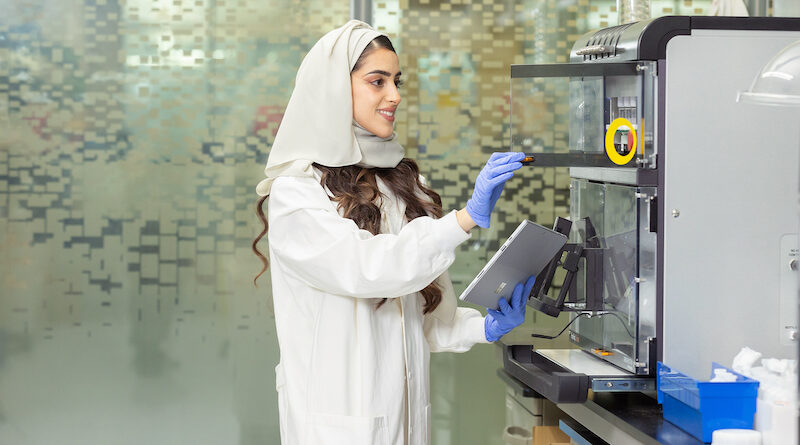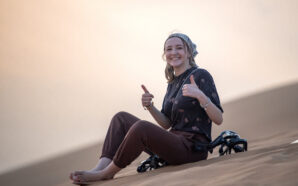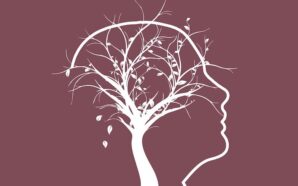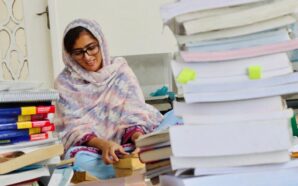The L’Oréal-UNESCO For Women in Science Middle East Regional Young Talents Program, in partnership with Khalifa University of Science and Technology, earlier celebrated a decade of empowering female scientists from the GCC in the fields of Life Sciences, Physical Sciences, Mathematics and Computer Science, who have blazed trails and are changing the landscape of scientific discovery in the region. Since its inception in the GCC in 2014, the program has made prodigious strides in nurturing and furthering the research endeavors of 51 female Arab scientists by awarding endowments totaling AED 3.4 million and supporting their professional growth. Among them are several scientists who have also received international recognition, with five going on to win the International Rising Talents Awards, and another four scientists receiving the L’Oréal-UNESCO For Women in Science International Award, as well. The regional program is part of the L’Oréal-UNESCO’s global For Women in Science initiative that has already recognized over 4,100 phenomenal researchers and more than 127 International Laureates from more than 110 countries since its inception in 1998. The ceremony was to mark the 10th anniversary awarded 11 visionary researchers from the GCC underscoring their pivotal role in advancing knowledge, finding solutions to pressing global issues, and pushing the boundaries of scientific understanding. For the fifth year in a row, the program has been endorsed by H.E. Sarah Al Amiri, UAE Minister of State for Public Education and Advanced Technology and Chairperson of the UAE Space Agency.
Celebrating visionary women in the Arab region, Ananke interviews female scientists from the GCC participating L’Oréal-UNESCO For Women in Science Middle East Regional Young Talents Program – starting with Dr. Dana Alsulaiman (Kingdom of Saudi Arabia) For her research on addressing challenges in cancer diagnosis through advanced biosensing platforms to enhance early disease detection and better prognosis globally.
- Tell us about yourself, your academic and professional journey.
I’m an aspiring and passionate young investigator currently holding a position as assistant professor of material science and bioengineering at King Abdullah University of Science and Technology (KAUST) over in my home country, Saudi Arabia. Interestingly, I left home with my older sister to pursue education abroad at the age of thirteen and since then have travelled to Canada for high school, the UK for my Bachelor’s, Master’s, and PhD degrees, finally completing my postdoctoral fellowship at MIT in the United States before returning home two years ago.
My journey abroad has been enlightening, eye-opening, and insightful enabling me to gain the invaluable knowledge, the diverse friendships, the far-reaching network, and the important lessons I need to start my independent career in STEM as a young female researcher in Saudi Arabia. Coming back in 2021 was one of the best and long-awaited decisions that I have ever made – the energy and passion of the youth in Saudi Arabia was extremely high and extremely contagious. With my experience, I was motivated – more than ever – to return home and contribute to the positive transformations in Saudi Arabia guided by the initiatives of Vision 3020, in the hopes of making healthcare more accessible to all. I have finally established my research lab at KAUST which focuses on the development of next-generation platforms for early disease detection and personalized therapy in a sustainable, minimally-invasive, and cost-effective manner.
- What was the inspiration behind your choice of study and vocation?
Since childhood, I have always wanted to contribute to the field of healthcare initially by being a pediatrician, following the footsteps of my great aunt, who was one of the first female Saudi pediatricians in the country. Over time, I have come to realize the potential of technology and advanced materials in solving many healthcare problems through early detection and precision medicine. For this reason, I chose to pursue research in a highly multidisciplinary field, lying at the interface between bioengineering and material science.
- What have been some of the most significant milestones in your professional journey?
One of the first milestones of my professional journey was winning the prestigious Imperial College London President’s PhD scholarship to support my doctoral research in Bioengineering. To my knowledge, I was the first Saudi female to receive this highly competitive award and funding opportunity. Another milestone that encouraged me at the start of my research journey was receiving the 2016 Bronze medal at the STEM for Britain national competition which was held at the UK parliament. I also feel proud that one of the most promising projects of my research, focused on nanopore-based biosensors, was also recognized by the Institute of Engineering and Technology (IET) in 2019 and was awarded the IET Healthcare Technologies Award that year. Lastly and one of the biggest milestones in my career has to be establishing my independent research lab at KAUST, called the BioMAD lab. I feel very proud of setting up the lab and developing a highly multidisciplinary team of students and researchers all focused on tackling advanced healthcare challenges through innovation, collaboration, and persistence.
- What are some of the challenges that you have faced and how did you overcome them?
Like many young women in the STEM field, one of the challenges I have faced throughout my career was asserting and establishing myself as a promising and successful researcher/scientist/engineer in a field that is largely dominated by men. To this end, one of the skills I always try to further develop and enhance is how to effectively communicate my research and its potential impact to any audience, lay, academic, young, or old. These communication skills are important in not only securing funding and attracting research partnerships, but also in helping to spread awareness about the research that women scientists are working on around the world.
- Do you believe gender has any part to play when it comes to challenges and milestones? And most importantly, do you think gender can also play a part when it comes to science in the sense – how you work, analyze, formulate, develop and/or create? Why or why not?
Compared to men, women often employ a different approach to tackling challenges, leading groups and generating solutions which is why it’s extremely critical to increase the representation of women in the STEM fields, especially in leadership positions. Women can look at a problem from a different perspective and notice details or gain insights which may go unnoticed by their male colleagues – the perspectives women bring to the table are invaluable and necessary to create truly innovative solutions to global challenges.
- We would love to know more about your work, the potential impact and the promise it holds.
My lab at King Abdullah University of Science and Technology (KAUST) called the ‘BioMAD Lab’ focuses on developing next generation technologies and advanced materials to tackle major healthcare problems facing the MENA region and the world including minimally-invasive and early detection of diseases like cancer as well as enabling robust platforms and solutions to drive precision or personalized medicine approaches in healthcare.
For example, we are developing smart phone-enabled miniaturized biosensors based on electrochemical sensing strategies similar to those used in glucose monitoring devices for diabetics. These portable and highly accessible technologies can achieve high sensitivity without the use of expensive reagents, the need for bulky equipment, or trained personnel. In fact, the high analytical performance of these biosensors depends on the use of advanced two-dimensional nanomaterials, which are decorated or ‘functionalized’ with synthetic DNA strands, which we can design and ‘print’ in our lab. These strands are able to rapidly and accurately detect cancer-specific biomarkers, called microRNA, from small volumes of patient serum samples, as a promising, minimally-invasive, and robust strategy to transform disease diagnosis.
The technologically-advanced solutions we are proposing have the potential to radically transform clinical diagnostics through enabling highly accessible tools for early detection and monitoring of disease using painless ‘liquid biopsy’ samples as opposed to traditional approaches which rely on invasive tissue biopsy samples.
- What does this recognition mean to you and how does it enable and empower you in your journey?
It’s unfortunate that many women in science are still overworked and underappreciated in their careers and workplaces. This recognition means a great deal to me especially as a young and passionate principal investigator and independent researcher at the start of my journey in STEM. I believe this recognition will propel my career, expand my network, and open new avenues for me to continue excelling and demonstrating the important role, voice, and perspective women bring to the STEM fields.
- Any last words?
I hope women exercise resilience, hope, and persevere in their journey in STEM and when they reach leadership roles, which they will, I hope women recognize their unique qualities of compassion, creativity and communication that enable them to excel in science without changing who they are or what they believe in.
Questions by Sabin Muzaffar
This interview has been lightly edited for clarity











